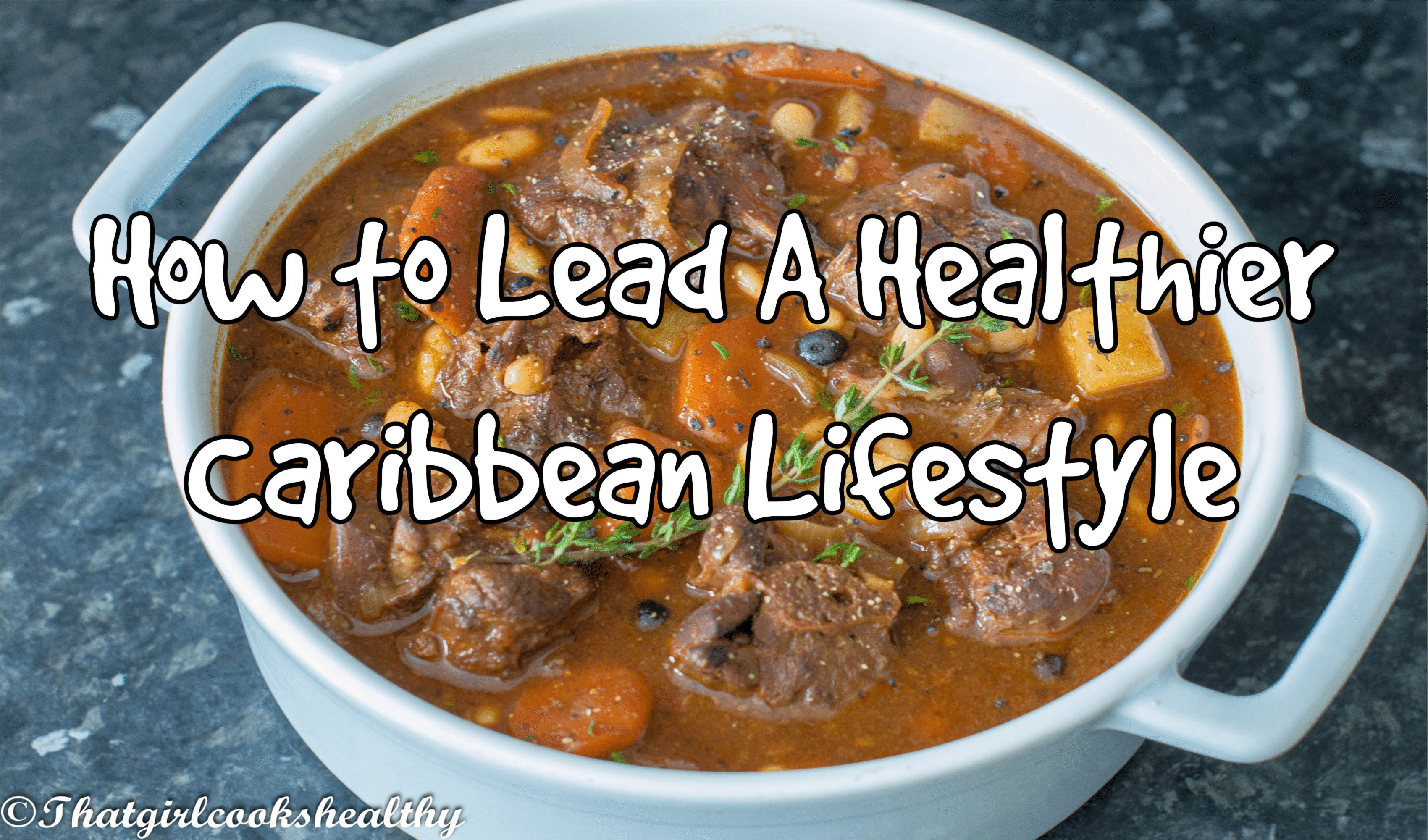
About the Caribbean diet
- Callaloo,
- Dasheen bush
To fresh fruit i.e;
- Paw paw,
- Mango
- Guinep (chenette, kinep, ackee)
- Golden apple (June plum, pommecythere)
- Othaheite apple
- Star apple
- Soursop
Fresh fruit and legumes (peas)
- Dolphin (Mehi-Mehi)
- Parrot
- Flying fish
- Conch
- Snapper
- Sprats
- Doctor and butta fish
- Jack fruit
Peas/beans i.e;
- Red peas (kidney beans)
- Butter beans
- Pigeon peas (gungo peas)
- Black beans
- Chickpeas (channa)
- Christophine/cho cho,
- Breadfruit,
- Yam (name)
- Dasheen
- Sweet potato
- Cocoyam
- Green yellow Plantain (albeit a fruit)
- Okra (
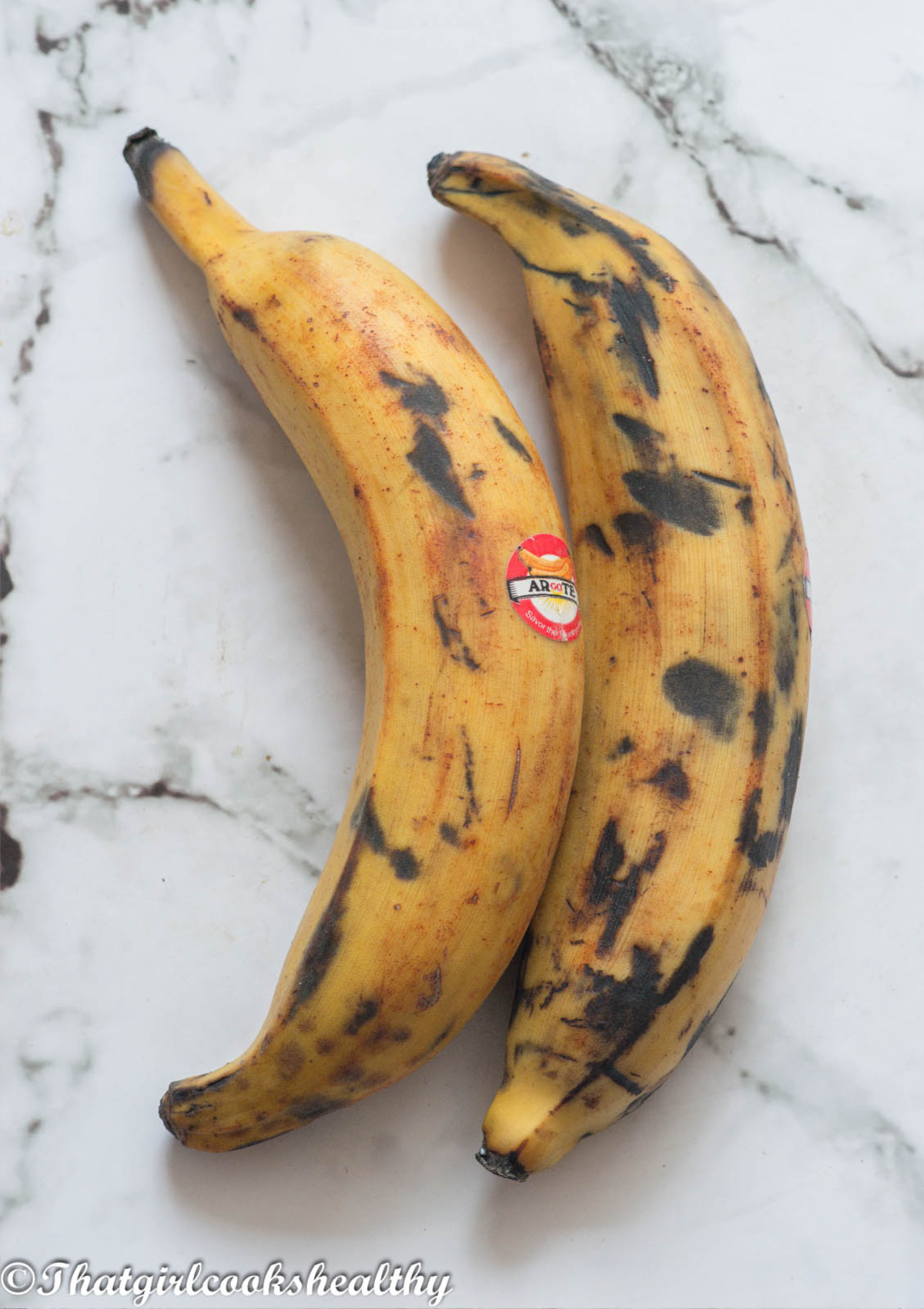
The above list doesn't cover everything, instead what it does is gives you a really good overview of just how wholesome and nutritious Caribbean food truly is.
The unhealthy aspect of Caribbean food
The question is what makes certain aspects of Caribbean food so unhealthy?As an African-Caribbean woman, I cannot help but notice the high levels of diabetes, obesity, kidney disease, high blood pressure and high cholesterol levels that plague our community.What attributes to these issues?- Poor diet/poor eating habits
- Lack of exercise
- Medication
- Genetics
I'm going to focus more on the first bullet point which is poor diet/poor eating habits as opposed to the other 3 bullets points.To delve into those other points would take more of an orthodox/scientific approach which is something that I am not qualified to discuss in such detail (source).The downfall - where we go wrong with our eating habits
Let's talk about the negative aspects, first and foremost before we focus on creating a positive spin on this situation.Where our eating habits fall short are in the preparation, that's where I would say 80-90% of our downfall is which means we can change these things once we are ready to make that change.Here are a few core issues that need to be addressed;- Fried food - As a collective, fried food is at the centre of our culture, granted it may taste good but it is doing nothing for our overall health.
- Dependency - Heavily dependant on using large amounts of oil/wrong choice of oil. For example using canola/sunflower/corn oil in large quantities.
- Too many carbs in one serving - i.e a plate of ground provisions i.e yam, boiling dumpling, cassava, breadfruit, boiled plantain all in one serving.
- Too much salt sugar/processed sugars - i.e white sugar, refined sugar, table salt.
- Constant use of processed ingredients - Foods that are made with processed ingredients .i.e white wheat flour to make johnny cakes/boiled dumpling/bakes/floats, hops bread, roti, white rice, salted beef, pork, fish, pigtail.
All of the above listed pretty much attribute to many of the cardiovascular health issues which plague the community (source).Another thing we like to do in the community is shaming tactics, embracing "fatness" and making insensitive comments about people who are naturally slim i.e from a Jamaican perspective referring to someone as "marga" or "bony" if you're Bajan.There is a lot of importance placed on being "thick" especially for women which can actually cost our health.Unlike the western hemisphere where a slim catwalk figure is the standard of beauty, in the Caribbean the "thicker" a woman is more sexier she is.Many people eat the wrong types of food to obtain thickness, they feel pressurised from our culture to "fit in" at any means necessary.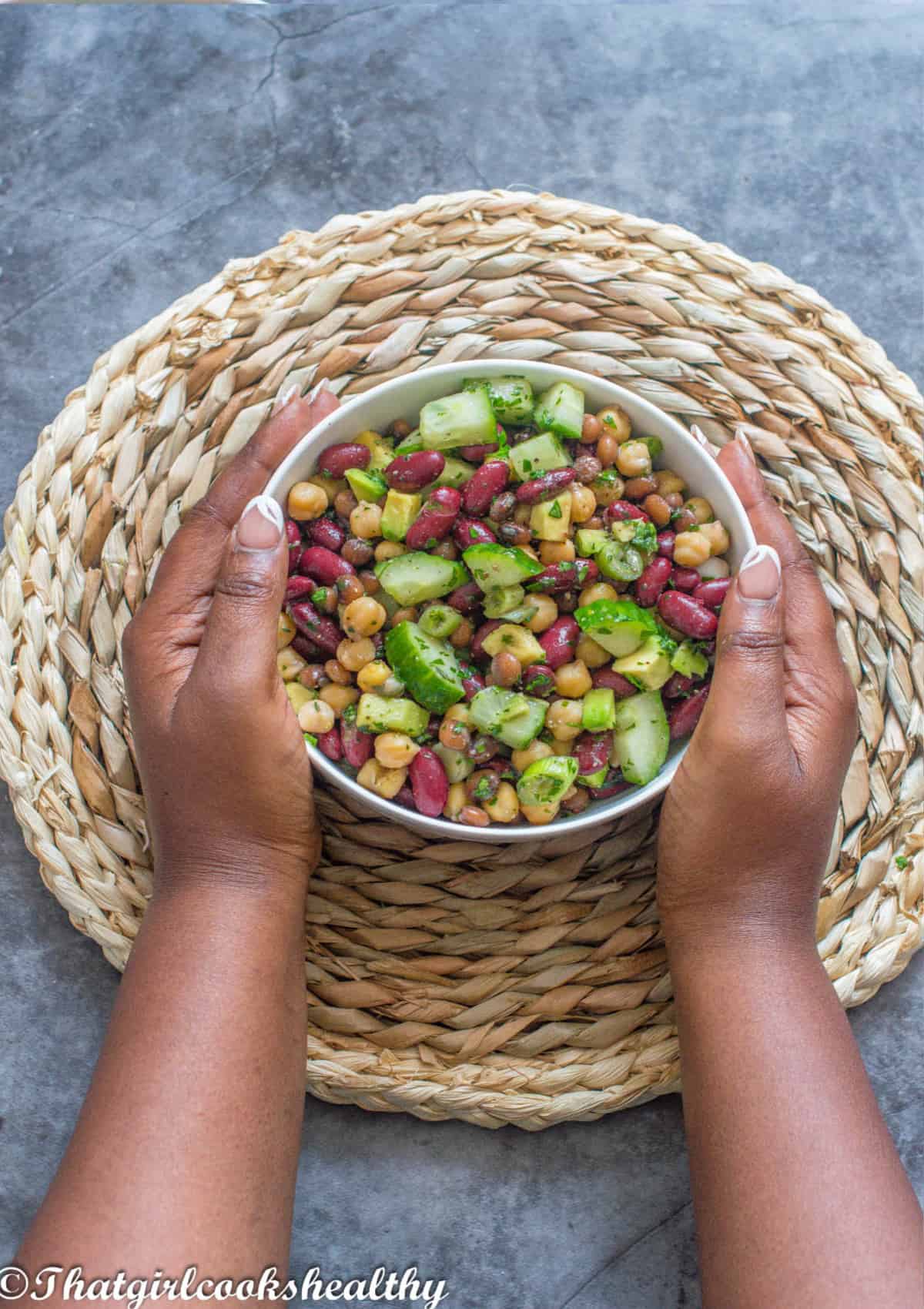
How to make positive changes
The good news is that you can take control of the situation by being more aware of where the problem lies, being more open minded and being prepared to change.Here are some tips that I will share with on how to make those changes to be a better version of yourself;- Change your mindset - change starts from within! I'm sure you have probably heard this before, but it's very true. In order for you to lead a healthier lifestyle it's really down to you to make that change.
Nobody can make the change for you, not even I have the power to do that nor would I want to coerce you to change.
- Be more open minded - Step outside of your comfort zone, this means doing things that make you feel uncomfortable. Again, this is all apart of that change!
- Set yourself a realistic goal - it could be a specific goal i.e a special occasion, maybe you were unfortunate to see a relative go through some health issues or you're doing to for your family/children.
Whatever the reason, just think about it or even write it down, set yourself small goals i.e to loose 1-2lbs a weeks or it could even be to eat a side serving of vegetables with one meal a day (source).
- Take babysteps - Don't be unrealistic with your change, take small steps. For example, eat one healthy thing per day then slowly increase it to 2, 3 until your whole day is centred around healthy eating.
From there you can increase this to daily and before you know it, you will embark on a long term lifestyle change.
- Avoid deep fat frying - Yup, I said it fried chicken, fish anything that uses a few cups worth of oil, needs to go.
Sauteing in a few tablespoons of oil is fine and using a small amount of oil to cook your favourite fried food is fine, but do so in moderation please.
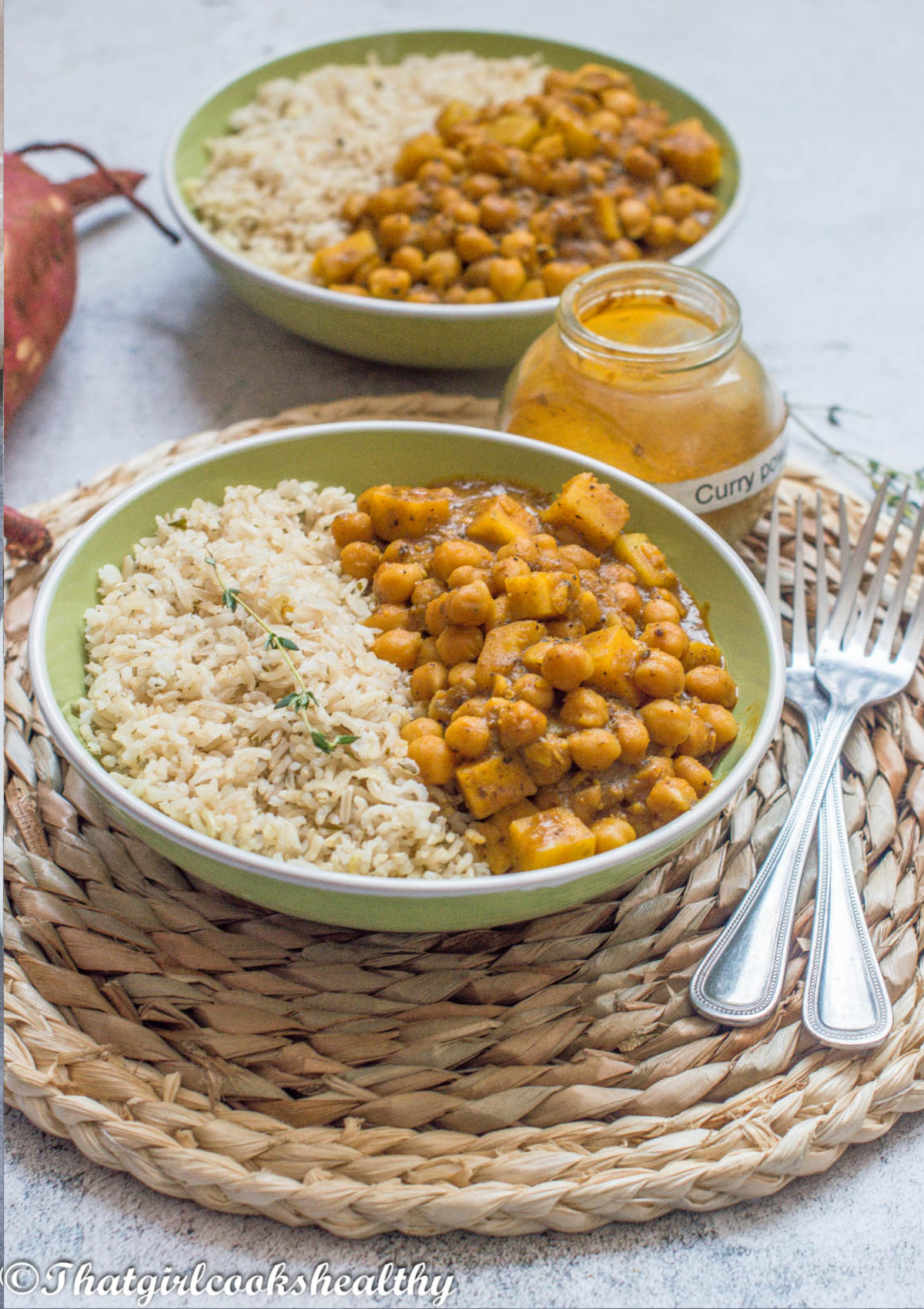
- Cut down on fatty foods - Eat the cuts of meat with a higher fat content in moderation - oxtail, cow heel, sousse, pig feet, chicken foot (steppers) etc.. these food should be limited, again, eat them but in moderation.
- Use lean cuts of meat - Choose the leanest cut of meat where possible, granted this can sometimes be more expensive at times but look out for special offers and discounts at the supermarket.
However, if this isn't in your budget then simply trim off, any excess bits of meat, from the meat to make it more lean and less fatty. When you are cooking meat on the bone, be sure to skim off any excess fat.
- Air fryer/oven bake, steam and grill food - The excessive use of large quantities of oil has to stop, instead, explore other cooking methods. Focus on air frying, grilling, steaming and oven baking where possible.
Doing things like oven baked fish or double roasting breadfruit. This is something I do often, where I roast the breadfruit and then once roasted and sliced I simply coat the slices in oil (olive oil or coconut oil are my favourite) and bake it in the oven.
- Use a study non stick frying pan - Another great tip that I learnt while growing up. When making things like fritters, bakes, dumpling, use a good sturdy non-stick frying pan/skillet.
I also recommend doing this in small batches as this will limit the amount of oil that is used.
- Use good cooking oils - Use oils with a high smoke point, so olive, coconut and avocado oil are all good for the body and best to cook with. Coconut oil gets a bad press for being saturated, but that's simply because many people fail to understand that the saturated oils from coconut oil help to compliment the good cholesterol which is known as HDL that aids things like inflammation (source).
- Reduce the amount of carbs per serving - I totally understand that Caribbean food is all about being hearty and incredibly filling but we don't need to consume every single ground provision with our main meal.
No more dumpling, cassava, white/yellow yam, cocoyam and dasheen and not to forget to white rice in one serving per person, that's way too many carbs.
While the vegetable itself isn't unhealthy, eating a combination of all of the above vegetables would be high caloric. Eating 4-5 at once will simply result in excess weight gain.The solution = It's okay, to have 1-2 i.e green banana with dumpling, but not too many at once. I know soup is a culprit for this but limit how often you do this.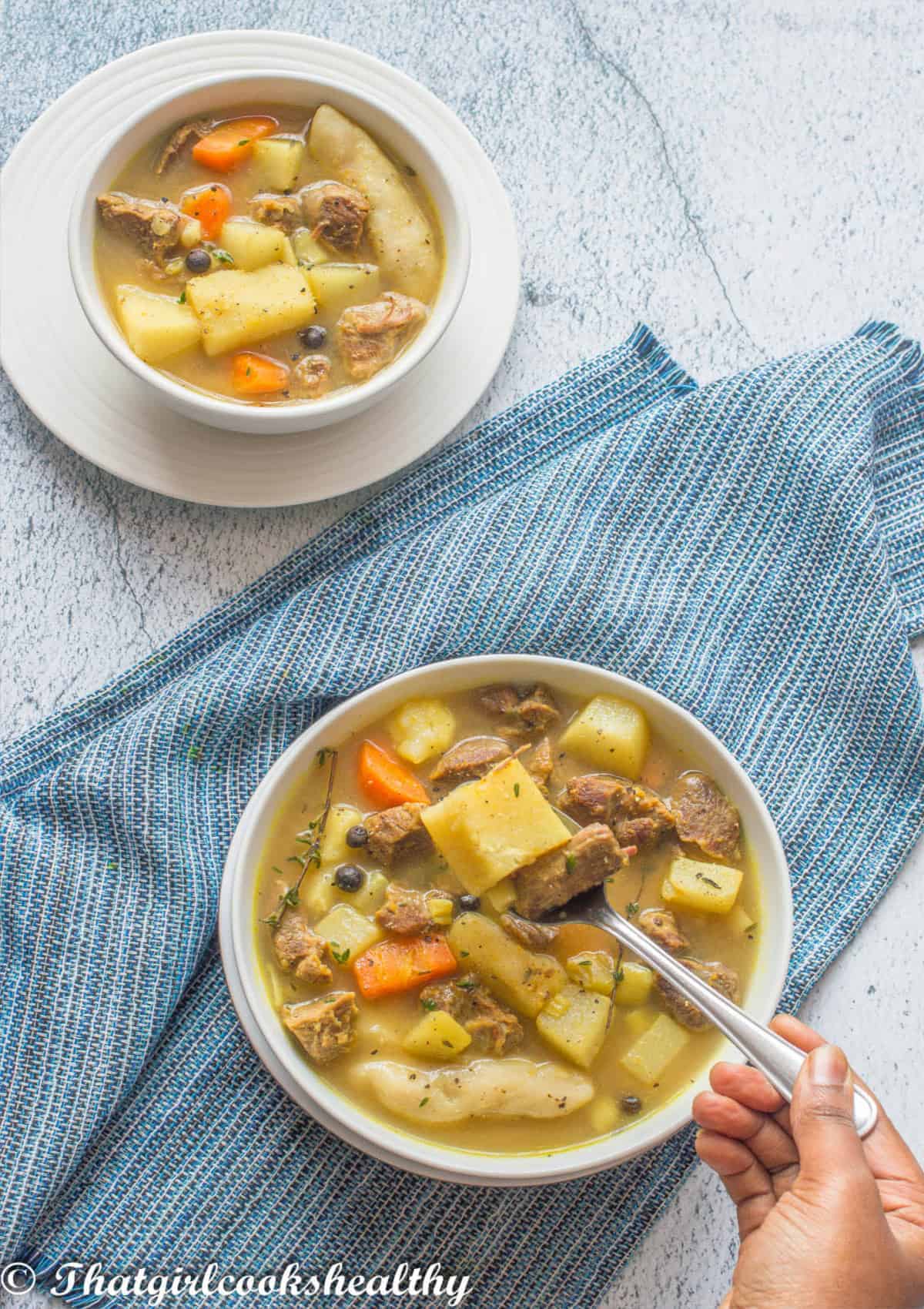
What about Saturday soup?
I know you're probably thinking? What about Saturday soup?It's okay to have a medley of carbs once in a while or once a week for Saturday soup (assuming you aren't doing this throughout the week) but definitely not every single day.The key is to reduce your carb level so you are only consuming what the body needs, not what YOU think it needs and do everything in moderation and not excess.Eating in moderation
We often here the phrase "eat in moderation" but does that truly mean? That is such a good question.In my humble opinion, eating in moderation is all about being more mindful about what you are eating and how often. It doesn't mean having to forgo eating a fried johnny cake forever and forever.You can still consume the things you enjoy, but you will be more aware of things such as the portion size, pushing away certain foods and limiting things such as sweet treats.It may even include counting the calories of certain foods. One thing for sure, it doesn't mean deprivation.What frustrates and confuses people the must about this phrase "eating in moderation" is when does this apply.Really this is down to the individual, because each person has unique nutritional needs. Once you tap into planning your meals and being more aware of what foods more nutritious then others, you will find it easier to know when to eat the foods that are considered " a guilty pleasure".For some people, that might mean eating chocolate one a day, for others it might mean eating fried snapper on a monthly basis.And another person, their moderation might mean adding sugar to their lifestyle every other day.Unfortunately, it's not something that is set in stone, it is very much an individualistic thing but ultimately you do not need to deprive yourself on of your creature comforts (source).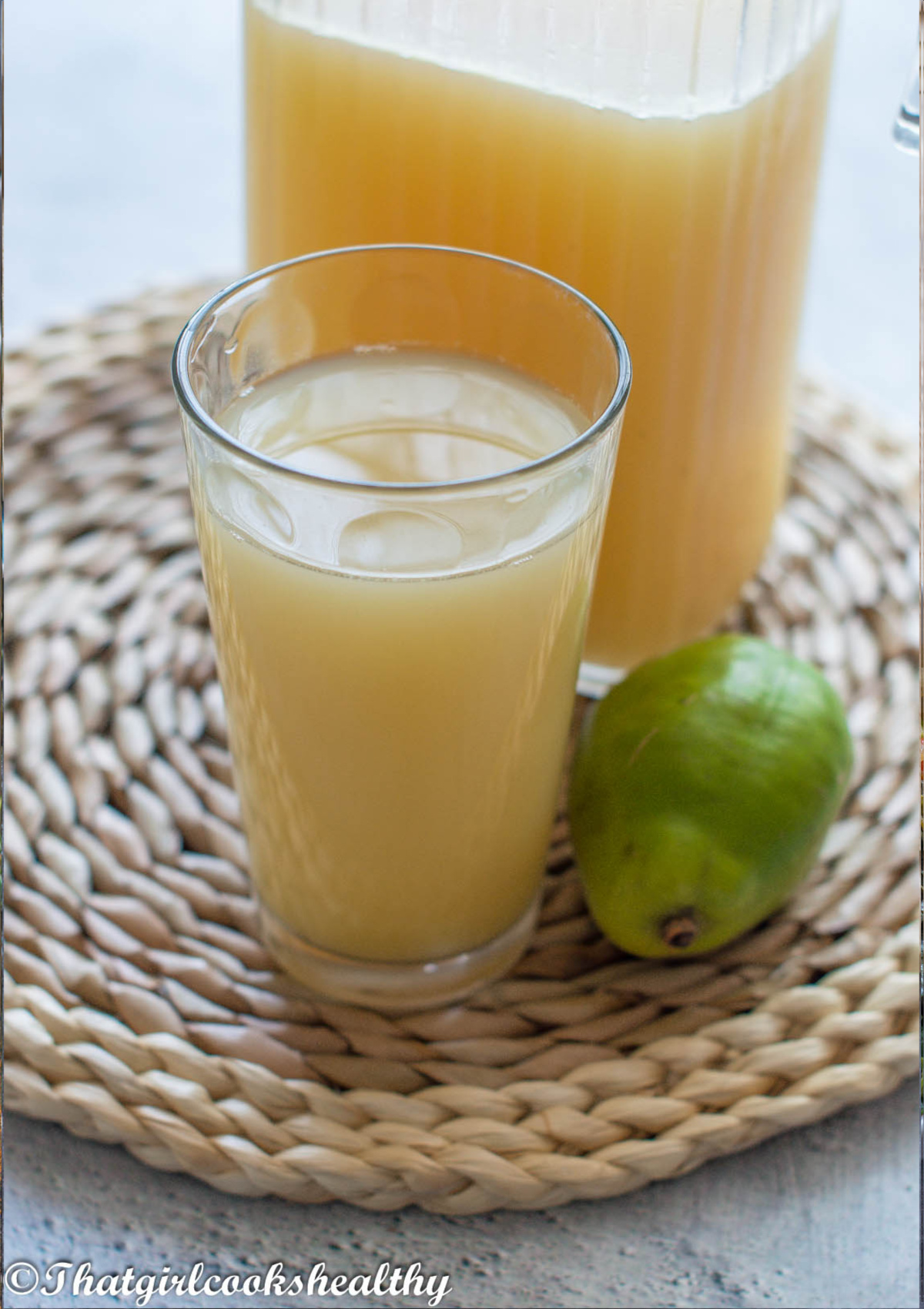
- Eat more vegetables/low carb/high protein foods - Adding more leafy greens and low carb vegetables so things like cho cho/christophine, callaloo/kale or spinach, grilled or oven baked fish, jackfruit (outside of callaloo season) carrots, bell peppers, okra, steamed cabbage. Those are just a few examples low carb food that you can consume more of.
Speaking of low carb Caribbean recipes, this link is an example of a roundup that I did to kick start the new year. You can tap into these recipes at any time of the year, it doesn't matter when, just do it.
- Limit alcohol consumption - this one goes without saying, limit things like rum punch, adding alcohol to your cakes/desserts, alcohol contains a lot of sugar.
If you must, leave the alcohol consumption for special occasions but ultimately as with most things the key is moderation.
- Eat more whole foods - start using brown rice in your pelau rice or rice and peas. It is in your best interest to swap refined foods/ingredients and use whole grain where possible.
- Reduce sugar/salt - This is crucial especially if you have high blood pressure/diabetes. I know coconut drops, and cassava pone taste great, I agree with you!
Fresh fruit such as paw paw, pineapple, mango, soursop are great naturally sweet occurring options, again, all in moderation. Try to incorporate at least a handful of nuts and seeds (unsalted) to snack on instead of sweet treats.
In my recipes you will see that my choice of sweetener tends to be;- Agave nectar
- unrefined maple syrup
- coconut sugar
- unrefined raw organic cane sugar.
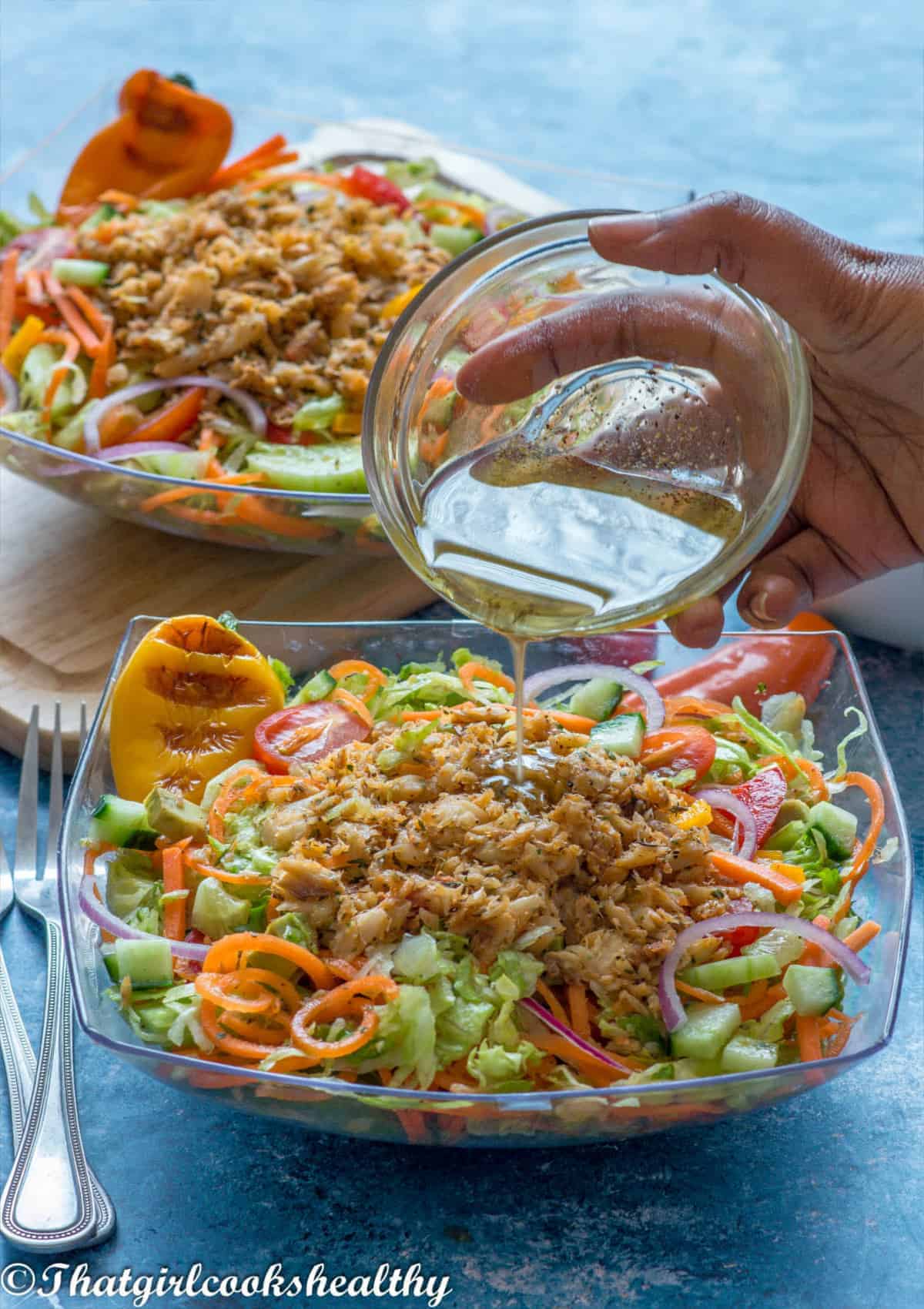
Sugar and salt
I also make my own condensed milk with it, although all of these sweeteners have health properties (especially coconut sugar).It's still a sugar and should be treated as such, so please don't use this version in everything, definitely, only use what you need in moderation.Banana, contains natural occurring sweetness and are great in things like some punch recipes and smoothies.Swap the white table salt for one that is unrefined like sea salt or my favourite is Himalayan pink salt which has trace mineral and vitamins which a good for things like teeth and bones and mental health (iodine).The body actually needs some salt, contrary to what people say, the key is to have using the right salt (source).I know pink salt is an abnormally to the Caribbean culture but this is all about changing and embracing things that will lead to a positive and better version of yourself.- Make your own salted food - instead of buying saltfish, make your own. It's healthier and contains no white salt, also things like salted pigtails, beef etc... just buy the part of the meat that you need and sprinkle some pink salt on it.
- Make your own seasoning/stock - I make a few seasoning and stock recipes on my website. You can control what ingredients go into either of these rather than depend on MSG and maggi cubes.
- Eat starchy enriched vegetables - it's okay to eat your creature comforts such as cassava, yam, plantain, green banana etc.. after all, these are fibrous foods, just make sure to balance them out with leafy vegetables and remember don't consume too many in one serving! (source)
Here are a few personal additional tips that I think you should really heed as well.Plan your meals ahead of time, that way you know exactly what you are having and have an idea of what ingredients you need . Things such as cooking time and portion size are all key.Additionally, it is also a good idea to make a collective, household change.You can throw out any of the bad foods (I mean grab a black bag, collect all of the junk and discard it) and slowly embark on a healthy eating as a family.You are more likely to succeed in a long term healthy lifestyle if you do it as a household because you are making the change together and can hold yourselves accountable as well as motivate one another.More articles for you to check out
- Caribbean Foodie 101
- How to Season Meat
- Meat Preparation - Why We Clean it and How
- Learning All About What Caribbean Food Is
- Caribbean National Dishes
- Ways to Stay Healthy Over The Christmas Period
- Glossary of Basic Cooking Terms
- How to Store Herbs and Spices
**Don't forget to comment below and star rate if you have tried my recipes. Let's be friends and engage on YouTube, Facebook and Instagram I also like to pin on Pinterest, where you can find more amazing recipes.**





Leave a Reply